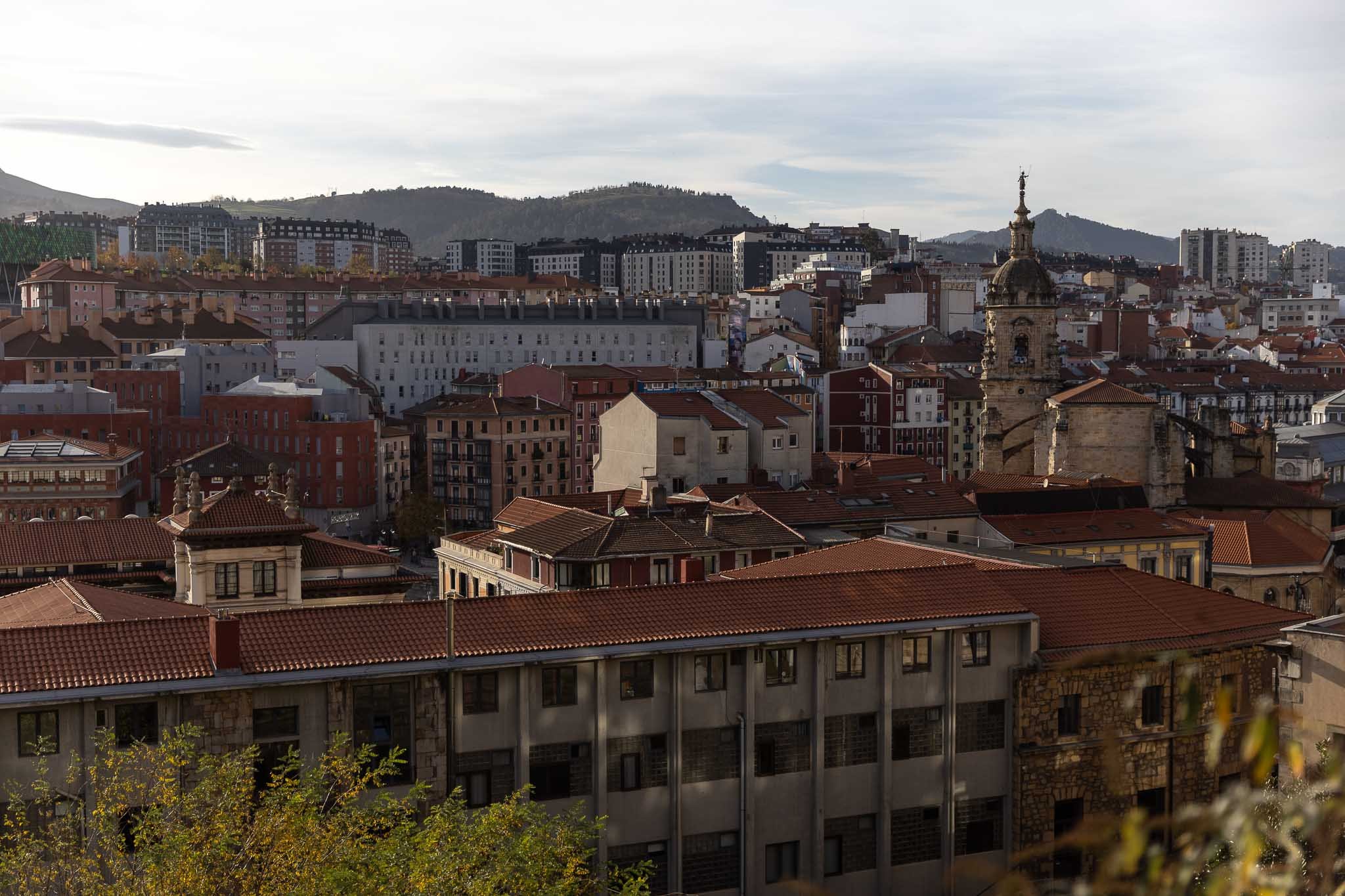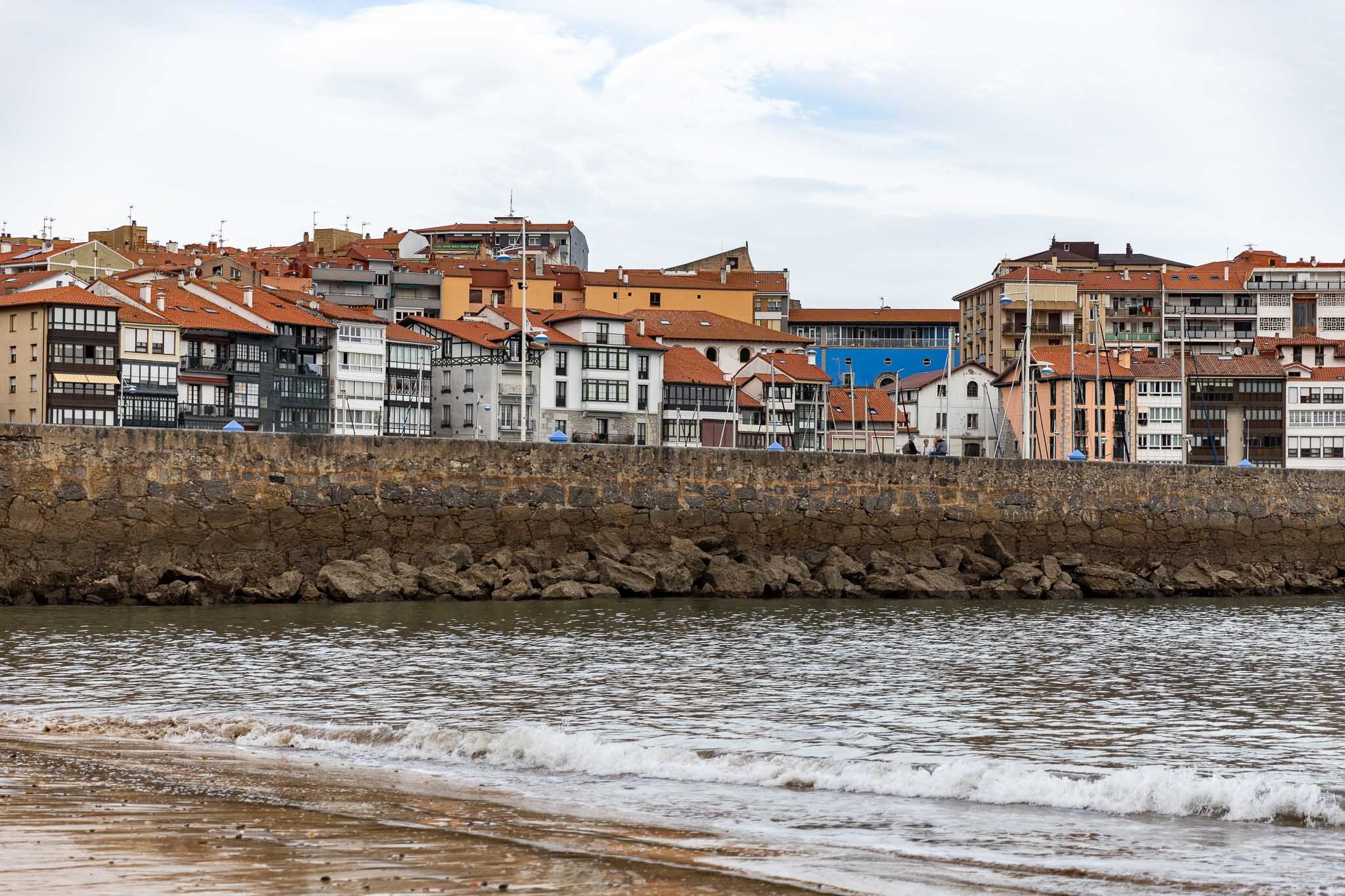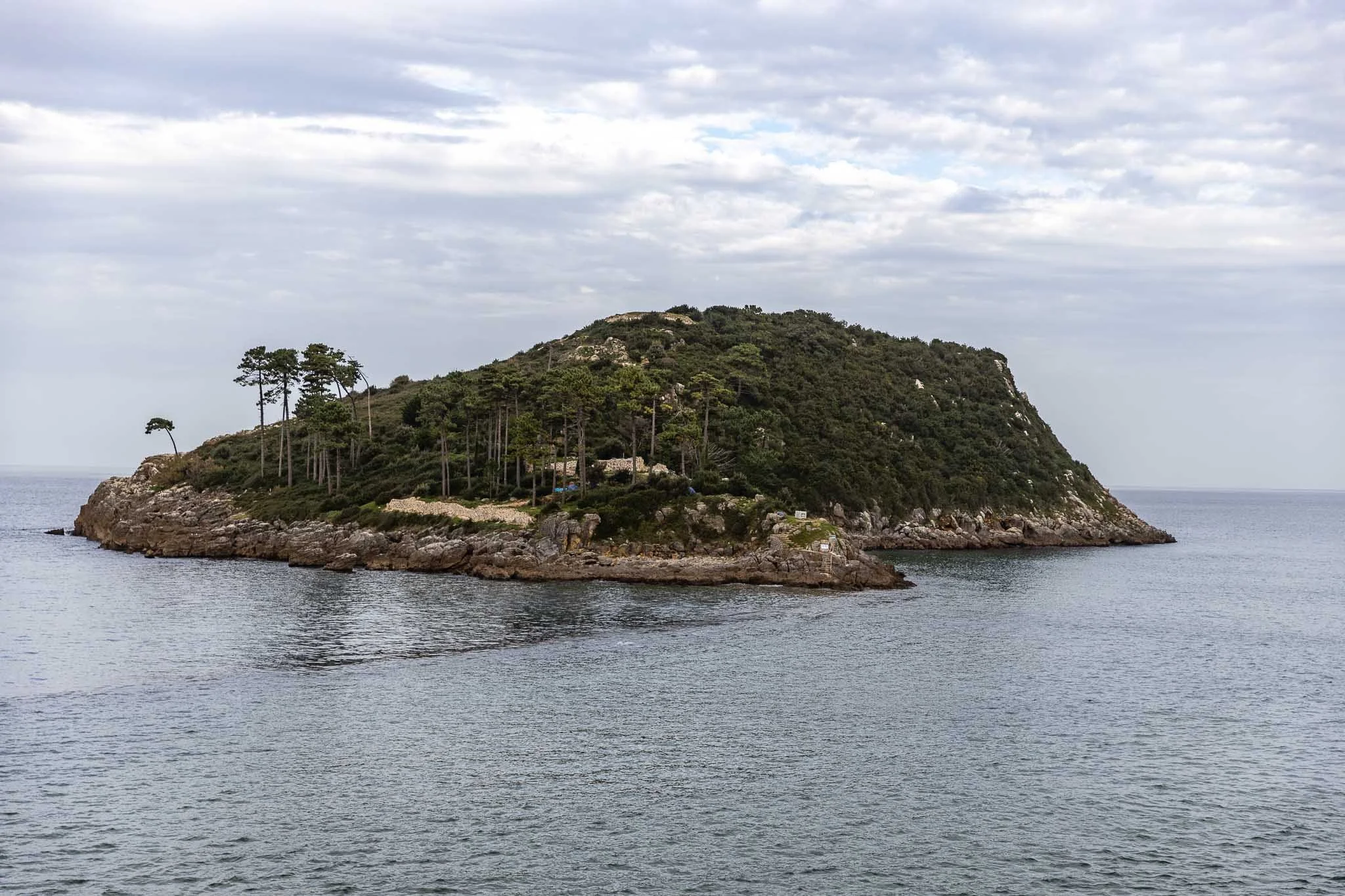Escaping Bilbao
We arrived mid-day and were immediately swallowed by the streets of Bilbao. The city didn’t just exist around us—it loomed, pressed inward, and pulsed with activity. With every block, a wall of windows and doors looking down on us, watching.
We followed streets that twisted and ascended, hoping for a moment of clarity, but even from above, the city didn’t shrink. The deep red rooftops sprawled outward and climbed higher, contained by a ring of high hills, another boundary keeping the hum of the city ricocheting off itself.
We clambered down into the depths and headed for the northernmost point of the Abando district to see the Guggenheim. It came into view just as the sky had begun to pale, the last of the sun retreating from view. The museum’s metallic plates reflected the cool evening light, a contrast from the golden glow of the interior lights. We stayed a while, taking photos of the curving shapes, lingering in the illusion of space and stillness.
And then, night fell.
If Bilbao had been busy before, now it exploded, like a 50 lb bag of marbles bursting on the floor. The streets teemed with people, so thick and constant it felt like the buildings themselves had expelled their inhabitants like a sneeze. The air vibrated with laughter, conversation, and music coming from unseen speakers.
We waded through the tide, trying to avoid being engulfed by the fast walkers, in search of food and rest but every turn led to more people, more noise, more movement. Restaurants and bars overflowed, their patrons spilling onto sidewalks, forming clusters that barely parted as we pushed through. At 7 p.m., we reached the first restaurant on our list. Not a single open seat. Not even space to stand. Just silhouettes of hands lifting glasses, of animated faces mid-conversation.
Fine. Another block. Another restaurant. Full and yet not serving food. No kitchens were open at this time. Not until 9pm. The best we could hope for was leftover, neglected tapas from earlier in the day.
My patience frayed. The travel exhaustion, the hunger gnawing at my stomach, the sickness still clinging to me—it all compressed into something unbearable. And the cigarette smoke, thick and inescapable, smothering my nose, clinging to my skin. I was suffocating in my senses. Jeremy saw it happening, saw my unraveling, and we tried to escape—to push beyond the worst of it.
But there was no escaping. Every street, every plaza, every corner choked with bodies. The city didn’t sleep. It didn’t pause. It didn’t give.
And then we saw it—two stories of glowing corporate familiarity. McDonald’s. Through the window, a handful of people sat in plastic seats, quietly eating, unbothered. We looked at each other, ashamed but resigned. It wasn’t a choice. It was a necessity.
Upon entering, we were greeted with a different smell, the smell of stale fried food and self-loathing. All hopes that McDonald's in Spain would live up to the higher quality standards in Europe were dashed. We ate in silence. Then, at last, we walked back home to sleep, hoping that we would crack the code tomorrow and find a way to exist in this city that never seemed to make space for us.
San Juan de Gaztelugatxe
Ready to banish the oppressive smoke and crowds, we fled to the coast for fresh air and open skies. We booked tickets to visit San Juan de Gaztelugatxe, an island off the coast in the Bay of Biscay. One could hike down and then climb 241 stone steps to the top to pilgrimage to a small chapel that dates back to the 9th century. We wound our way up, zig-zagging and taking breaks to turn around and admire the view.
To reach the island’s peak, we first had to descend—a steep, winding trail that led us down toward the roaring sea. Then came the climb. 241 ancient stone steps, worn and uneven, twisting skyward in switch backs. A pilgrimage in every sense, demanding breath and effort with each upward push.
Jeremy marched up with ease as I moved in a slow, deliberate rhythm, stopping when my legs burned and turning to take in the expanse behind us. The coastline stretched wild and jagged in the mid day sun and at the top we sat and rested as the wind teased at our hair. The world felt open. Unbound. The longer we stayed, the more Bilbao faded—its weight, its noise, its smoke dissolving into the ocean breeze.
Lekeitio
Our first escape from Bilbao hadn’t been enough. We craved the open space, the air, more distance from the city’s relentless hum. So we pushed farther east along the coast, toward the small town of Lekeitio, a place tucked between the hills and the sea.
We parked on the far side of town, near the beach, where the scent of salt and damp earth drifted in on the breeze. The walk into town took us past a narrow stone causeway stretching out toward a small, rugged island just offshore. The sea collided and sprang up over with the rocks on either side, before crashing back down.
We crossed the slick path gingerly, and lingered on the beach, watching the island’s steep, overgrown slopes rise ahead of us. A faint trail wound upward, inviting adventure yet forbidden by posted signs warning against climbing. Jeremy stared at the trail, eyes full of longing, but my eyes monitored the advancing tide, clawing it’s way higher up the sides of the walkway, licking and engulfing one rock at a time, advancing a little more with each wave. Jeremy sighed and followed me back to the mainland.
With the island and walkway behind us, we continued toward town, following the shoreline as waves fanned out over the sand. In the main square, life unfolded in warm, familiar rhythms. Families gathered near the church, children darting between tables, their laughter mixing with the scent of grilled seafood and baking bread. At one end of the square, a group had gathered on a small stage, their voices rising in unison—a song light and lilting, something that sounded like a lullaby. We paused, watching, listening, letting the easy cadence of Lekeitio wrap around us.
That night, we stepped back into the heart of Bilbao, only to find it barren, as if the city had exhaled and whispered “enough”. The streets that had once hummed with bodies and voices, clinking glasses and laughter, now stretched before us in an unsettling silence.
We passed a restaurant we had seen the night before, its windows then aglow with golden light and full of lively patrons leaning in close at their tables. Now those same windows stood black and lifeless.
We had resented the press of people, but in their absence, we felt adrift and abandoned. Too late, we realized: Sunday night was the city’s pause, its inhale before the rush of Monday.
Then, down the street, a single door stood open, spilling warm light onto the pavement. A pulse of neon flickered inside. A bar. An open bar. That was all the reason we needed.
We stepped inside, our presence breaking the silence. The bartender glanced up from polishing the last few glasses left behind. The place was nothing like the lively pintxos bars from the nights before. Instead, it had the air of a forgotten lounge—deep purple seating, neon accents humming softly against the stillness.
I ordered something that sounded sweet; Jeremy, an Old Fashioned. We sank into the couch, waiting for our drinks, waiting for someone—anyone—to walk in and break the strange, weighty quiet. But the doorway stayed vacant. The city, it seemed, had made up its mind and finally gone to bed.
We took that as a sign to saunter off to bed as well.





















